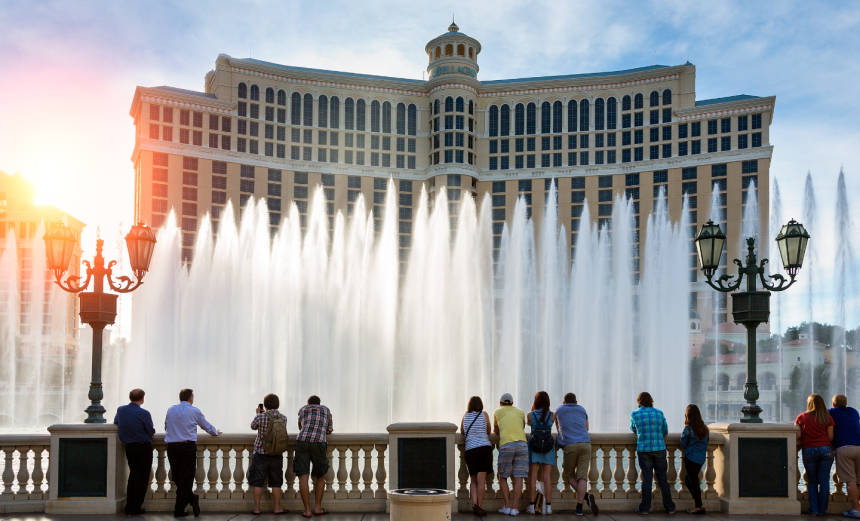The casino industry has witnessed explosive growth over the last few decades. In the U.S. alone, the revenue from casinos flew from $10 billion in 1992 to more than $43 billion in 2021. This isn’t unexpected when you consider how quickly GGBet casino online and other outlets have become prominent. Interestingly, this figure is expected to be tripled by 2030. When an industry experiences this kind of rapid progress, there will be conversations about its impact on the local economy and tourism. As usual, there are always two sides to discussions like this.
Those in support highlight job creation, tax revenue, and an influx of tourists as the major benefits. On the other hand, those who paint its impact as negative pinpoint an increase in gambling and diversion of local spending as their major reasons. We aren’t here to endorse the right view because they’re both valid perspectives. Depending on the specific circumstance, casinos can positively and negatively impact local economies and tourism.
So, we’ll examine the key factors that influence whether the casinos’ effect in a specific region is a net positive or negative.
How Casino Positively Impacts Local Economies and Tourism?
Job Creation
This is the single most important impact of casinos on the economy. An increase in employment is always a welcome development. The casino industry is responsible for directly employing hundreds of thousands of workers to operate the games, provide food and beverages, handle security, and manage operations.
The existence of casinos also supports indirect jobs in supplier industries. So, a new casino in a locality will significantly boost their employment rate and, consequently, their economy.
Tax Revenue
Casinos can generate substantial tax revenue for state and local governments. How? Through taxes which are levied on casinos’ gross gaming revenue. So, mathematically, more casinos translate to more tax revenue for the government of the region. With increased taxes comes more money for the government to provide essential amenities like social services, education, infrastructure, healthcare, etc.
Some states earmark casino taxes for specific programs or local communities. Tax revenue from casinos and related tourism provides an ongoing funding source. Reports show casino tax income topping $500 million annually for some states. If the governments of these territories carefully invest this revenue, they will significantly develop the community.
Tourism Revenue
Casinos are tourist attractions responsible for a large portion of the increased presence of foreigners in a country or city. These visitors will lodge in hotels, dine in restaurants, and shop at retail stores. All these activities inject more money into the economy. Las Vegas is a perfect example of a city benefiting from tourism dollars.
How Casino Negatively Impacts Local Economies and Tourism?
Crime
This is a good reason to oppose the growth of the casino industry. According to criminologists, casinos attract the dregs of society. We’re referring to prostitutes, drug dealers, money launderers, armed robbers, loan sharks, etc.
Let’s take the Borgata Casino as an example. This establishment opened in Atlantic City in 2003. It led to a 70% spike in armed robberies, and auto thefts went up by 30%. Seeing the immediate danger casinos can bring to a locality, seeking increased security in such areas will be wise.
Gambling Problems
There are responsible casino players, and there are compulsive gamblers. The latter are a menace to society because they’re willing to do anything to finance their addiction. This includes excessive borrowing and stealing. Casinos enable these behaviors, and it can do more harm than good.
Let’s take you back to 1994. A casino opened in Windsor, Ontario. Within a year, the gambling rate in that city surged from 2.2% to 3.8%. This seems harmless, but that’s not all it brought. It also increased bankruptcies by 150%.
Market Saturation
The influx of casinos will initially boost the local economy, and the increased competition will ensure they deliver the best services to their customers. However, the continuous emergence of new casinos will saturate the market at some point.
The Niagara Falls community is an excellent example of this. The city was flooded with about 14 casinos barely 90 minutes from each other. This growth was counterproductive as several of them eventually closed down and impacted the employment and tourism rate in that area.
Diversion of Local Spending
Casinos are great for pastimes. However, when the major spending on entertainment shifts from restaurants, bars, nightclubs, and theaters to casinos, it will be bad for the economy. Think about it. With the previous establishments, the money goes back and circulates within the locality. Casinos, on the other hand, suck in most of the money, enriching themselves and impoverishing the community.
Key Factors in Maximizing Benefits of Casinos on Local Economies and Tourism
Despite the downsides of having casinos, there are ways to mitigate these cons and maximize the upsides:
- Implement Responsible Gambling Initiatives: These programs promote sensitization, monitoring, and treatment for gambling problems. Examples include voluntary self-exclusion policies, mandatory player card tracking, and funding counseling services.
- Carefully Plan Casino Locations: New casinos should be sited purposefully within a region to meet demand without oversaturating markets. Alternatively, we recommend more online casinos. A perfect example is https://ggbet.win/en.
- Invest Gaming Tax Revenues Wisely: Tax funds should go to pressing public needs like infrastructure or schools, not just general expenses. The government can also allocate funds to offset the cost of gambling addiction treatment.
- Promote Diversified Tourism: While casinos can anchor tourism, the government shouldn’t neglect other attractions to ensure diverse entertainment and maintain visitation if the casino market declines.
Conclusion
The blessings of a casino in a community come at a cost. This establishment provides jobs, increases tax and tourism revenues, and supports economic development. However, casinos enable gambling problems and crime. The net impact of casinos largely depends on strategic planning and regulation to maximize benefits and minimize costs. Each community must be realistic in weighing the pros and cons to determine if casinos align with their specific goals. With proper oversight and investment, casinos can be a boon, but they also hold pitfalls communities must be vigilant against.














